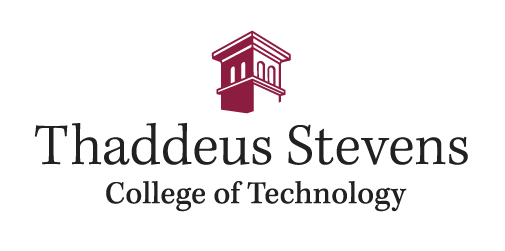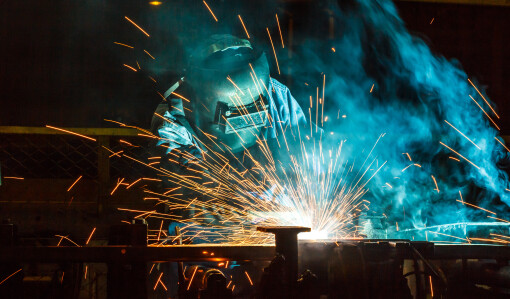Industry needs = opportunity for Stevens students
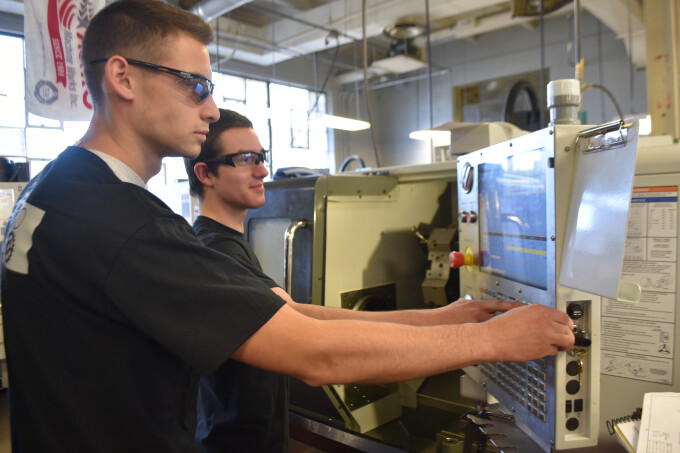
LNP, Karen Triano Golin – How would you feel if you graduated from school with multiple job offers? Or that of this school’s 2016 graduating class 98 percent were either employed fulltime or were continuing their education? Sounds “horrible” especially in this age of
Truly this school exists and is in our own backyard. Thaddeus Stevens College of Technology has a national reputation for excellence and has been recognized five consecutive times by the Aspen Institute as one of the top two year colleges in the nation based on performance, improvement
And it’s growing. Laurie Grove, Director of Career
The program, a combination of electrical and mechanical skills using
Grove says, “By far, no question our most in-demand, highest recruited programs are anything to do with electrical or electro-mechanical.”
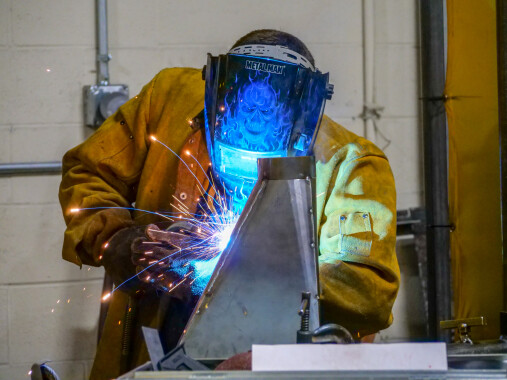
Justin Klunk '18 welding in Metal Fabrication & Welding Technology
Major growth is also being seen in Steven’s welding, metal fabrication and machine tool (CNC) program and computer and network systems administration which added an evening cohort of 25 to double the program’s capacity. As well a computer software engineering program was started this past fall at industry’s request.
Grove has a hard time wrapping her head around the numbers even though she sees them every day. Consider what’s occurred over the last three years. In 2015 Stevens graduated 270, recruited by 912 employers for
Even these overall numbers pale for those in certain programs. Electro-Mechanical technology had over 29 jobs per graduate, Mechanical Engineering Technology 26.1, and Machine Tool and Computer-Aided Manufacturing 18.6. The
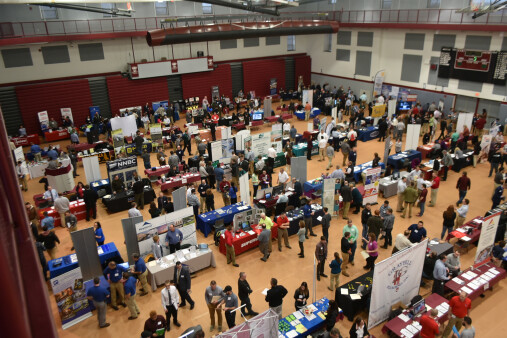
Thaddeus Stevens College of Technology holds annual career fair for TSCT students & alumni
These statistics reinforce how difficult it is to fill open jobs. There are just not enough qualified workers.
Stevens has been creative in their approach. “Internships have historically been more in
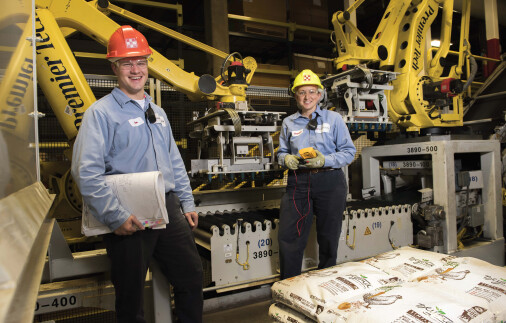
Alums Stephanie Mekhail '17 & Alex Headings '14 currently work at Nestle Purina
And it’s paid off. For the 2017 class, of those graduates who participated in hands-on internships, 97 percent had fulltime job offers prior to graduation and more than 60 percent stayed with the company with whom they interned.
One change Stevens has seen is how
Each program also has a vibrant industry advisory committee. Each of the 19 major technology programs has an Industry Advisory Council comprised of representatives from business, industry, education, associations
She explains, “Companies are committing representatives to sit on the committees which meet twice a year. Their voices ensure the curriculum remains relevant, current and what is being used today. We morph and adapt to keep up with industry’s needs. More and more industries are partnering on the committees, not just to have a say, but to build relationships with faculty and to have a face in front of students which is most important to them.”
The biggest change according to Grove is the “whole idea of how employers are approaching recruitment and retention of highly
 TSCT students talking to Industry reps at TSCT annual career fair
TSCT students talking to Industry reps at TSCT annual career fair
The committee roles reach beyond curriculum and involvement is encouraged in any number of areas including public relations, legislative and leadership activities and more dependent on the company’s time.
Stevens is moving forward in other ways as well. They broke ground in October on a new facility, the Greiner Advanced Manufacturing Center, which will house the machine tool and
 A rendering of the new Greiner Advanced Manufacturing Center
A rendering of the new Greiner Advanced Manufacturing Center
Even with everything they are doing, they will already be at capacity in 2018 and are looking for more ways to expand. But one thing doesn’t change. Stevens only offers
That’s evident in some of the starting salaries earned by graduates. Averages over the last three years in the construction and manufacturing clusters are #39,700 and $42,237 respectively. And highest starting salaries at $57,400 in Electronic Engineering, $50,999 in Electro-Mechanical Technology, $50,430 in Electrical Technology and $49,575 in Metal Fabrication and Welding Technology as examples.
For the most part, these are salaries earned locally as the vast majority comes from the five counties around Lancaster and stay close to home after graduation. Raise them here, educate them here and keep them here. Not a bad way to build a strong industrial base with a deep community and family ties.
